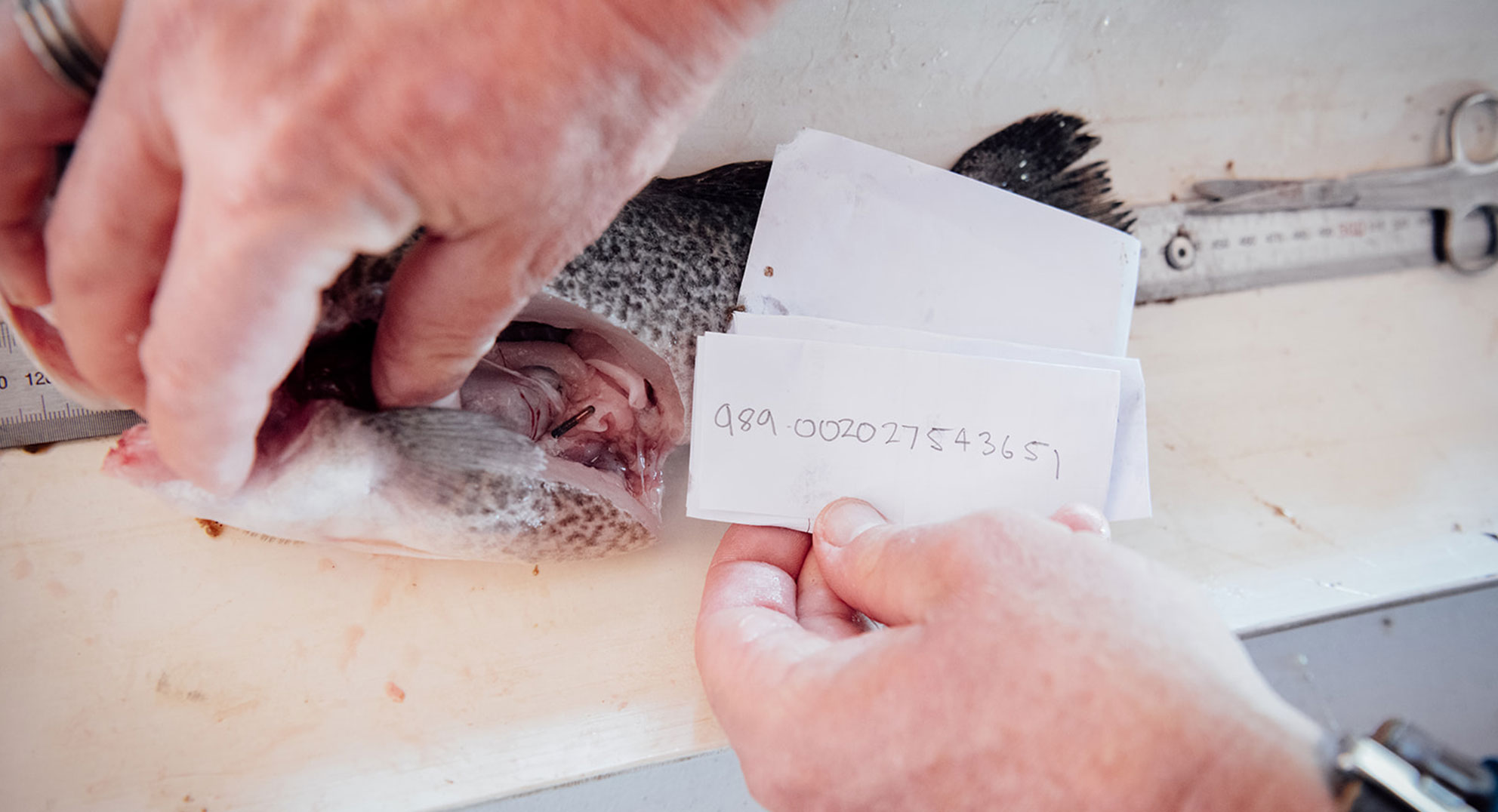How regional communities are aiding fish recovery in the Murray–Darling Basin
news
Published 17 Jan 2025
A One Basin CRC-backed project, connecting First Nations and recreational angler communities for fish tagging and recovery activities, highlights the crucial role of community participation in Basin scientific programs.
The project, titled Citizen science: Integrating community groups into basin-scale fish tagging and recovery programs, has been exploring how to get locals – primarily anglers and First Nations people – to implant ‘tags’ (or small microchips) in native fish.
Led by researchers from the Gulbali Institute, Charles Sturt University, not-for-profit OzFish, and monitoring system company Karltek, the project demonstrates how communities can effectively participate in scientific projects and empowers regional communities to conduct work that strengthens fish management and conservation efforts.
Fish tagging provides scientists with valuable information about fish populations, which helps them understand, manage, and conserve fish. When tagged fish pass an antenna installed in the river, the tags ‘ping’ providing data on fish migration patterns, habitat preferences, population dynamics, mortality rates, and more.
Getting citizen scientists involved expands the pool of tagged fish, which in turn increases the volume of data available, supporting fisheries management and conservation efforts throughout the Basin. The more fish we tag, the more information that is generated, and the better we can conserve our rivers and protect fish.
The project team adapted and refined a fish tagging course originally developed for the Lower Mekong Basin in Southeast Asia to fit the Basin’s contexts, partnered with local communities for the program’s implementation, and conducted short training courses for citizen scientists. The program then trialed field implementation at the Edward River in Deniliquin, NSW, with One Basin CRC’s Griffith Hub, where citizen scientists were taught how to correctly and humanely insert a PIT (Passive Integrated Transponder; Internal) tag into fish.
Speaking on the workshop, lead researcher Dr Katie Doyle, Gulbali Institute, said, “This pilot is assessing whether local and First Nations communities can be successfully integrated into fish tagging projects, while maintaining animal ethics and scientific rigour.”
Read more about the workshop here. Further workshops will be held next year in Swan Hill and Mildura – register your interest to participate here.
The project team is exploring how best to store, manage, and share the monitoring data captured. The team will also look at implementing a monitoring and evaluation program to demonstrate skills proficiency to government agencies.
The long-term vision is to integrate citizen scientists and river rangers into fish tagging initiatives as trusted partners alongside government. Community engagement will be central, ensuring that local knowledge and cultural values are respected and integrated alongside ecological and health benefits.
Ultimately, the project seeks to scale its successful model across Basin jurisdictions, potentially influencing federal and international practices in the future.
Latest news & events
All news & eventsWebinar recording: Working With Country To Heal
Read MoreBuilding capacity for Basin communities to respond to variable water futures
Read MoreDelivering the Commonwealth Environmental Water Holder’s (CEWH) Flow-MER 2025 Annual Forum
Read MoreMurray Darling Association 2025 National Conference: Griffith drives Basin-wide water collaboration
Read More